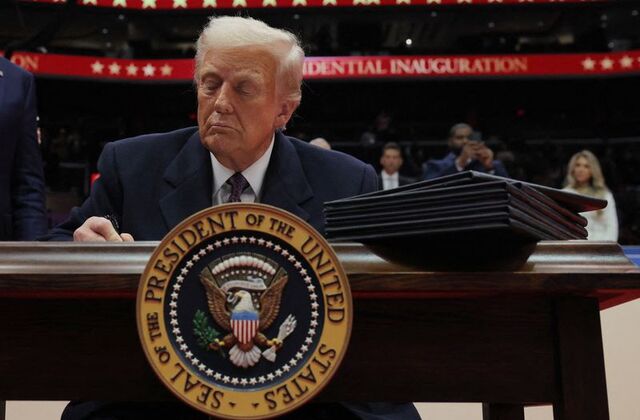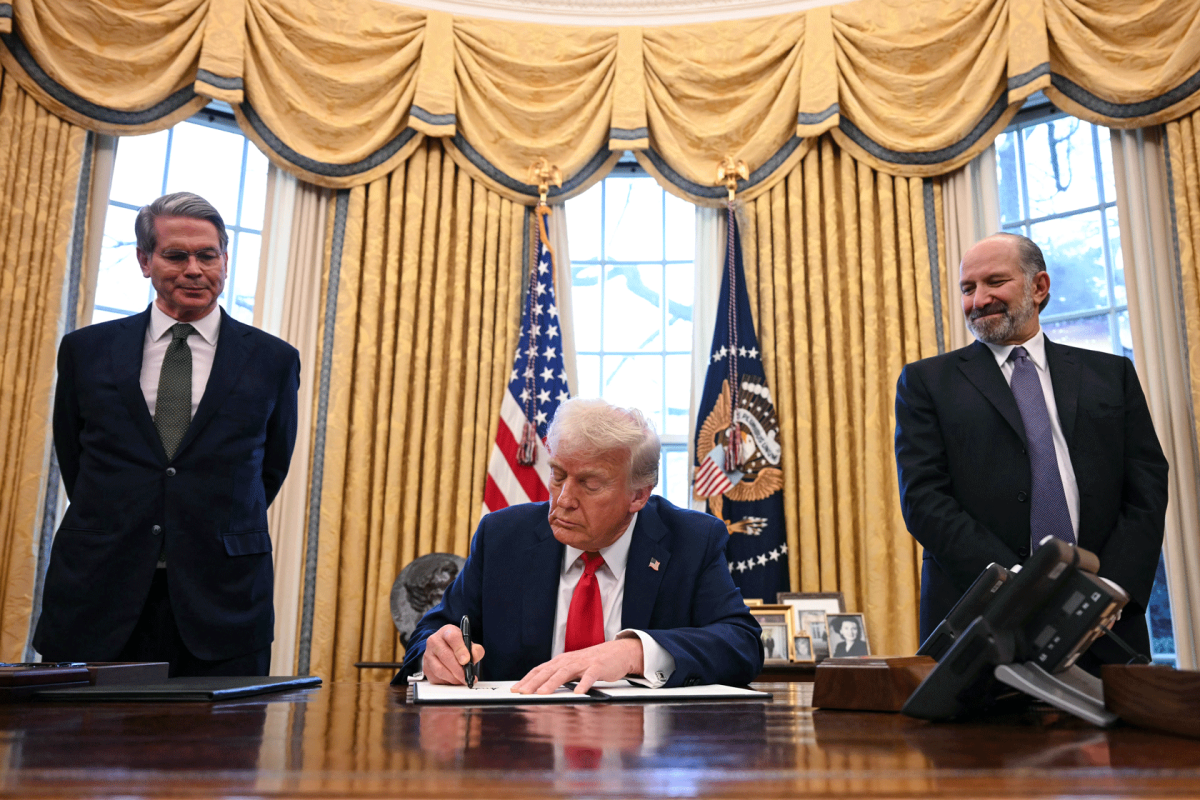The systematic exclusion of minorities from economic opportunities paved the way for the economic disparities in race that we see today. These already disadvantaged groups have been hit hard by Trump’s first 100 days in office. Economic opportunity was already scarce for minorities and Trump has set out to end many of the few programs that helped minorities economically. These changes will likely result in a widening of the already wide income and education gap between white and minority communities.
Minorities have been systematically discriminated against economically since before the founding of the United States. Because the focus of this article is to explore the policies relating to Trump’s first hundred days in office I cannot discuss this history in its entirety. Nearly half a millenia ago the first African Slave touched ground in North America. Over two hundred years later the 1860 census showed the country was enslaving 4 million African-Americans. For nearly two hundred and fifty years African Americans were seen as property and not human beings. Even though slaves were freed with the thirteenth amendment, many African Amercians were forced into sharecropping which turned out to be slavery under another name. The south, where most African Americans still lived, also passed a series of laws called to restrict economic mobility and freedom. Furthermore, they segregated black and white people in public facilities, which was later upheld by the Supreme Court of the United States in Plessy v. Ferguson. These southerners were also a part of FDR’s New Deal Coalition. While government programs helped a large number of Americans, the southern Democrats refused to pass any legislation that would benefit minorities. Even when legislation was passed the funds would not go to minorities. Social security was withheld for jobs primarily held by minority groups and GI benefits were denied to many black veterans. Even when Lyndon B. Johnson passed the Civil Rights Act of 1964 and Voting Rights Act of 1965 discrimination did not stop and the economic disparities from one hundred years of Jim Crow did not just magically close overnight. Still minorities were denied jobs and financial assistance on a regular basis. In 2008, minorities were targeted for subprime mortgages during the real estate bubble, leading to mass foreclosures in Black and Latino neighborhoods. Still today, minorities face education disparities and mass incarceration rates severely limiting economic opportunity.
Trump’s crusade against economic initiatives for minority communities started on his first day of office. Executive order 14151 ended all government mandated diversity, equity, and inclusion initiatives. This is an end to giving opportunities to areas of the population that had been underserved for generations and is a loss of opportunity to include all minorities in various public programs. After signing Executive order 14151 the next day he signed Executive Order 14173 ending all federal contracting requirements on affirmative action, further hurting minorities with employment opportunities. About a week later, Trump heavily reduced federal contracting goals for minority owned small businesses. In 2024 the Small Business Administration set a goal to allocate 15% of its budget to minority owned small businesses. Trump’s administration slashed this to 5%. In March, Trump set out to dismantle the Community Development Financial Institution fund and the Minority Business Development Association. These agencies helped serve minority business ventures in underserved areas. With a combined budget of these agencies being just under $500 Million, they constitute a mere rounding error in the national budget. These agencies provided much needed support and lifelines to small businesses all over the country. This raises a new point. Trump wants to cut government spending. This is a very popular idea and is one of the main reasons he got elected. While cutting down on government waste is a very noble goal, not everything he is cutting is waste. Agencies like the department of education, USAID, MBDA, and others, provide meaningful services to people all over the country and the world. Many times, these cuts constitute a rounding error in the government’s budget while proving benefits that people rely on. The government is playing with people’s lives by trying to make the miniscule cuts to government spending. Perhaps it would be better to put some more thought into letting Elon Musk dismantle these vital agencies.
Furthermore, Trump’s general economic policies have negative effects on minority communities. Many government programs are in place to help the disadvantaged. With Trump letting Elon Musk run through DC with a chainsaw, many of these programs’ funding has been cut significantly. Furthermore, trickle down economics means big tax cuts for the wealthy and limited opportunity for the people at the bottom. Also, high tariffs lead to retaliatory tariffs which cause goods that these people rely on to rise in price. Because minorities are at the bottom of the economic spectrum, they will be hit the hardest from these policies. The first hundred days of Trump’s second term has made economic conditions even rougher for minorities and other marginalized communities. Today, Black men earn about 75 cents and Black women 64 cents for every dollar a white man earns, and that is even adjusting for education and experience (Economic Policy Institute, 2023). If the current administration keeps promoting policy to end helping minorities, economic gaps will open wide enough to the point that they will never be able to close.




